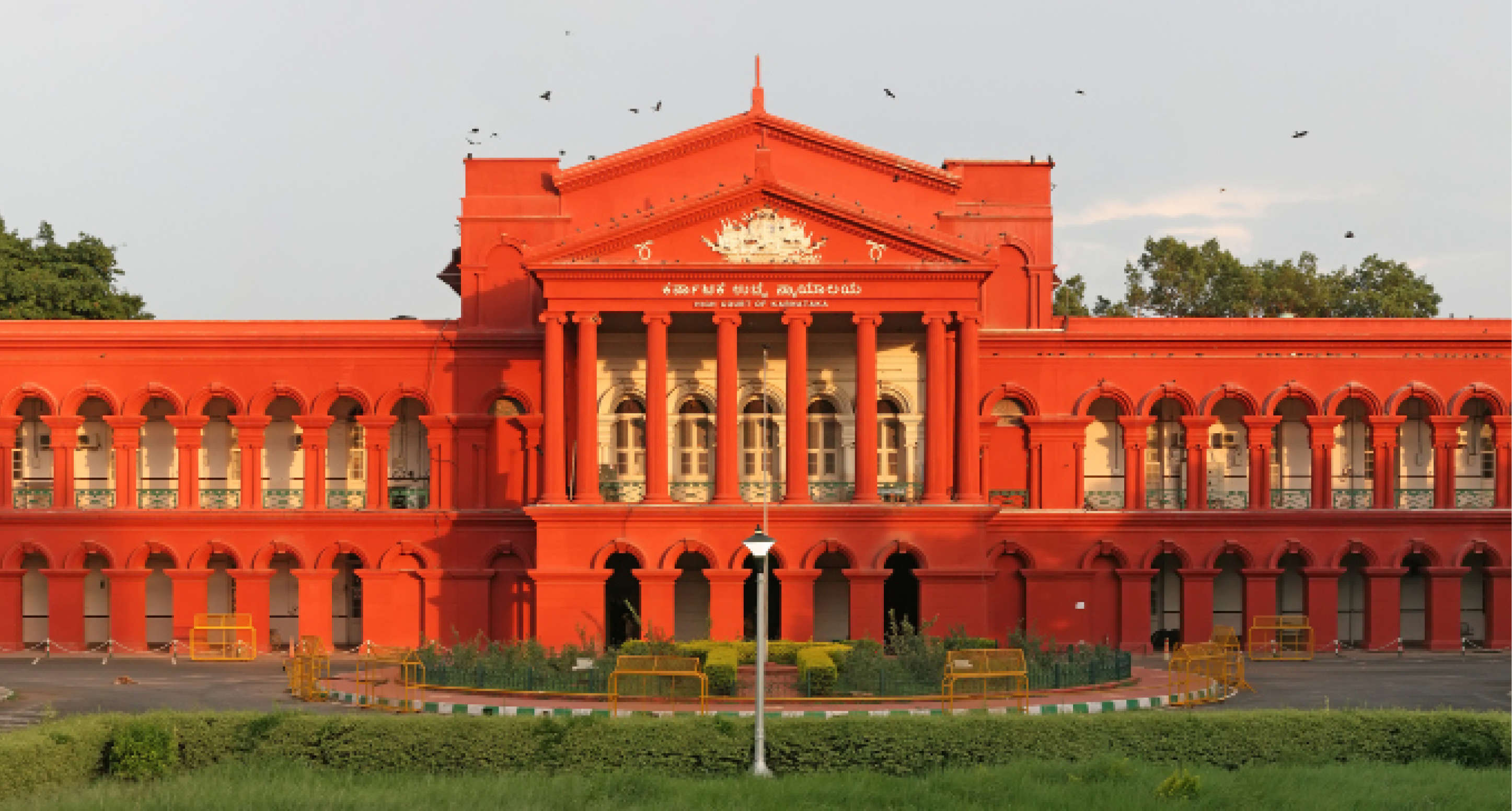In a latest judgment titled Babu vs State By Kengeri Police Station in Criminal Petition No. 2119 of 2022 and cited in 2022 LiveLaw (Kar) 115 that was delivered on April 4, 2022, the Karnataka High Court has reiterated that a customer found in a brothel at the time when it is raided cannot be prosecuted. It must be underscored that all the prosecuting agencies must always take note of what the Karnataka High Court has held in this case so clearly. A single Judge Bench comprising of Justice M Nagarpasanna allowed the petition filed by one Babu S and quashed the proceedings pending against him under Sections 3, 4, 5 and 6 of the Immoral Traffic Prevention Act, 1956 and Section 370 (Trafficking of person) of the IPC.
To start with, this notable judgment authored by a single Judge Bench comprising of Justice M Nagaprasanna of Karnataka High Court at Bengaluru first and foremost states that, “This Criminal Petition is filed under Section 482 of Cr.P.C., praying to quash the FIR dated 23.09.2021 registered by respondent under CR.No.347/2021 for the offences P/U/Ss.3, 4, 5 AND 6 of Immoral traffic Prevention Act, 1956 and Section 370 of IPC against the petitioner.”
At the outset, the Bench states in para 1 that, “Petitioner is before this Court calling in question the proceedings in Crime No.347/2021 registered for the offences punishable under Sections 3, 4, 5 and 6 of Immoral Traffic Prevention Act, 1956 (‘Act’ for short) and Section 370 of the IPC.”
To put things in perspective, the Bench then while stating the facts briefly envisages in para 3 that, “Facts in brief are as follows:
A complaint is registered on 23.09.2021 by the PSI of the respondent-police station, on the credible information received, for the offences punishable under the Act and the IPC and proceedings were initiated in Crime No. 347/2021. The petitioner was a customer who was found at the time when the premises was searched on 23.09.2021. Result of the search was seizure of several materials.”
Most significantly, the Bench then holds in para 4 that, “It is not in dispute that the petitioner was a customer in the brothel when the search was conducted by the respondent-police. A customer, in a brothel, cannot be hauled into criminal proceedings is the consistent view taken by this Court in plethora of cases. This Court while considering the purport of the Act and the Code in the case of BARATH S.P. v. STATE OF KARNATAKA in Crl.P.No.1757/2022 disposed on 24.03.2022, has held as follows:
“7. The afore-narrated facts are not in dispute. The proceedings against the accused are pending consideration in the aforesaid C.C.No.109 of 2018 where the petitioner is accused No.4. The petitioner is arrayed as accused for the reason that he was caught as a customer in the brothel when the search or raid took place on 24-09-2015 and the proceedings are instituted for offences punishable under Sections 3 to 6 of the Act and Section 370(3) of the IPC. It is germane to notice Sections 3 to 6 of the Act and they read as follows:
“3. Punishment for keeping a brothel or allowing premises to be used as a brothel.—(1) Any person who keeps or manages, or acts or assists in the keeping or management of, a brothel shall be punishable on first conviction with rigorous imprisonment for a term of not less than one year and not more than three years and also with fine which may extend to two thousand rupees and in the event of a second or subsequent conviction, with rigorous imprisonment for a term of not less than two years and not more than five years and also with fine which may extend to two thousand rupees.
(2) Any person who—
(a) being the tenant, lessee, occupier or person in charge of any premises, uses, or knowingly allows any other person to use, such premises or any part thereof as a brothel, or
(b) being the owner, lessor or landlord of any premises or the agent of such owner, lessor or landlord, lets the same or any part thereof with the knowledge that the same or any part thereof is intended to be used as a brothel, or is willfully a party to the use of such premises or any part thereof as a brothel, shall be punishable on first conviction with imprisonment for a term which may extend to two years and with fine which may extend to two thousand rupees and in the event of a second or subsequent conviction, with rigorous imprisonment for a term which may extend to five years and also with fine.
2A. For the purposes of sub-section (2), it shall be presumed, until the contrary is proved, that any person referred to in clause (a) or clause (b) of that sub-section, is knowingly allowing the premises or any part thereof to be used as a brothel or, as the case may be, has knowledge that the premises or any part thereof are being used as a brothel, if, –
(a) a report is published in a newspaper having circulation in the area in which such person resides to the effect that the premises or any part thereof have been found to be used for prostitution as a result of a search made under this Act; or
(b) a copy of the list of all things found during the search referred to in clause (a) is given to such person.
(3) Notwithstanding anything contained in any other law for the time being in force, on conviction of any person referred to in clause (a) or clause (b) of subsection (2) of any offence under that sub-section in respect of any premises or any part thereof, any lease or agreement under which such premises have been leased out or are held or occupied at the time of the commission of the offence, shall become void and inoperative with effect from the date of the said conviction.
4. Punishment for living on the earnings of prostitution.—(1) Any person over the age of eighteen years who knowingly lives, wholly or in part, on the earnings of the prostitution of any other person shall be punishable with imprisonment for a term which may extend to two years, or with fine which may extend to one thousand rupees, or with both and where such earnings relate to the prostitution of a child or a minor, shall be punishable with imprisonment for a term of not less than seven years and not more than ten years.
(2) Where any person over the age of eighteen years is proved—
(a) to be living with, or to be habitually in the company of, a prostitute; or
(b) to have exercised control, direction or influence over the movements of a prostitute in such a manner as to show that such person is aiding, abetting or compelling her prostitution; or
(c) to be acting as a tout or pimp on behalf of a prostitute, it shall be presumed, until the contrary is proved, that such person is knowingly living on the earnings of prostitution of another person within the meaning of sub-section (1).
5. Procuring, inducing or taking person for the sake of prostitution.—(1) any person who—
(a) procures or attempts to procure a person, whether with or without his consent, for the purpose of prostitution; or
(b) induces a person to go from any place, with the intent that he may for the purpose of prostitution become the inmate of, or frequent, a brothel; or
(c) takes or attempts to take a person, or causes a person to be taken, from one place to another with a view to his carrying on, or being brought up to carry on prostitution; or
(d) causes or induces a person to carry on prostitution;
shall be punishable on conviction with rigorous imprisonment for a term of not less than three years and not more than seven years and also with fine which may extend to two thousand rupees and if any offence under this sub-section is committed against the will of any person, the punishment of imprisonment for a term of seven years shall extend to imprisonment for a term of fourteen years:
Provided that if the person in respect of whom an offence committed under this sub-section,—
(i) is a child, the punishment provided under this sub-section shall extend to rigorous imprisonment for a term of not less than seven years but may extend to life; and
(ii) is a minor, the punishment provided under this sub-section shall extend to rigorous imprisonment for a term of not less than seven years and not more than fourteen years;
(3) An offence under this section shall be triable—
(a) in the place from which a person is procured, induced to go, taken or caused to be taken or from which an attempt to procure or take such person is made; or
(b) in the place to which he may have gone as a result of the inducement or to which he is taken or caused to be taken or an attempt to take him is made.
6. Detaining a person in premises where prostitution is carried on.—(1) Any person who detains any other person, whether with or without his consent,—
(a) in any brothel, or
(b) in or upon any premises with intent that such person may have sexual intercourse with a person who is not the spouse of such person,
shall be punishable on conviction, with imprisonment of either description for a term which shall not be less than seven years but which may be for life or for a term which may extend to ten years and shall also be liable to fine:
Provided that the court may, for adequate and special reasons to be mentioned in the judgment, impose a sentence of imprisonment for a term of less than seven years.
(2) Where any person is found with a child in a brothel, it shall be presumed, unless the contrary is proved, that he has committed an offence under subsection (1).
(2A) Where a child or minor found in a brothel, is, on medical examination, detected to have been sexually abused, it shall be presumed, unless the contrary is proved, that the child or minor has been detained for purposes of prostitution or, as the case may be, has been sexually exploited for commercial purposes.
(3) A person shall be presumed to detain a woman or girl in a brothel or in or upon any premises for the purpose of sexual intercourse with a man other than her lawful husband, if such person, with intent to compel or induce her to remain there,—
(a) withholds from her any jewellery, wearing apparel, money or other property belonging to her, or
(b) threatens her with legal proceedings if she takes away with her any jewellery, wearing apparel, money or other property lent or supplied to her by or by the direction of such person.
(4) Notwithstanding any law to the contrary, no suit, prosecution or other legal proceeding shall lie against such woman or girl at the instance of the person by whom she has been detained, for the recovery of any jewellery, wearing apparel or other property alleged to have been lent or supplied to or for such woman or girl or to have been pledged by such woman or girl or for the recovery of any money alleged to be payable by such woman or girl.”
None of the provisions get attracted against a customer as he neither keeps a brothel or allows the premises to be used as brothel as obtaining under Section 3 of the Act; he does not live on the earnings of the prostitution as obtaining under Section 4 of the Act; he cannot be alleged of procuring, inducing or taking a person for the sake of prostitution; he cannot also be alleged of detaining a person in the premises where prostitution is carried on. The allegation against the petitioner is the ones punishable under the aforesaid provisions, which are on the face of it, is inapplicable to the case at hand.
8. The other offence alleged against the petitioner is the one punishable under Section 370 of the IPC. Section 370 of the IPC reads as follows:
“370. Trafficking of person: (1) Whoever, for the purpose of exploitation, (a) recruits, (b) transports, (c) harbours, (d) transfers, or (e) receives, a person or persons, by—
First.—using threats, or
Secondly.—using force, or any other form of coercion, or
Thirdly.—by abduction, or
Fourthly.—by practising fraud, or deception, or
Fifthly.—by abuse of power, or
Sixthly.—by inducement, including the giving or receiving of payments or benefits, in order to achieve the consent of any person having control over the person recruited, transported, harboured, transferred or received, commits the offence of trafficking.
Explanation 1.—The expression “exploitation” shall include any act of physical exploitation or any form of sexual exploitation, slavery or practices similar to slavery, servitude, or the forced removal of organs.
Explanation 2.—The consent of the victim is immaterial in determination of the offence of trafficking.
(2) Whoever commits the offence of trafficking shall be punished with rigorous imprisonment for a term which shall not be less than seven years, but which may extend to ten years, and shall also be liable to fine.
(3) Where the offence involves the trafficking of more than one person, it shall be punishable with rigorous imprisonment for a term which shall not be less than ten years but which may extend to imprisonment for life, and shall also be liable to fine.
(4) Where the offence involves the trafficking of a minor, it shall be punishable with rigorous imprisonment for a term which shall not be less than ten years, but which may extend to imprisonment for life, and shall also be liable to fine.
(5) Where the offence involves the trafficking of more than one minor, it shall be punishable with rigorous imprisonment for a term which shall not be less than fourteen years, but which may extend to imprisonment for life, and shall also be liable to fine.
(6) If a person is convicted of the offence of trafficking of minor on more than one occasion, then such person shall be punished with imprisonment for life, which shall mean imprisonment for the remainder of that person’s natural life, and shall also be liable to fine.
(7) When a public servant or a police officer is involved in the trafficking of any person then, such public servant or police officer shall be punished with imprisonment for life, which shall mean imprisonment for the remainder of that person’s natural life, and shall also be liable to fine.”
Section 370 of the IPC deals with offences punishable for buying or disposing any person as a slave, which is not the allegation and the incident would not link the petitioner to the said offences. Therefore, on both these counts the proceedings are rendered unsustainable.
9. For the aforesaid reasons, the following:
ORDER
(i) Criminal Petition is allowed.
(ii) The proceedings in C.C.No.109 of 2018 pending before the JMFC (II Court), Mysuru, stand quashed.””
Finally, the Bench then concludes by holding in para 5 that, “The facts obtaining in the case at hand are identical, as the aforesaid criminal petition was also considering the case of a customer in a brothel at the time of search. It would, therefore, cover the case at hand on all its fours. For the aforesaid reasons, the following:
ORDER
(i) Criminal Petition is allowed.
(ii) The proceedings in Crime No.347/2021 pending before the 32nd Additional CMM Court, Bangalore stand quashed.”
In a nutshell, the bottom-line of this learned judgment by Karnataka High Court is that customer found in a brothel can’t be hauled into criminal proceedings. The police and other prosecuting agencies must always remember this while prosecuting in such cases. Of course, there can certainly be just no denying or disputing it!
Sanjeev Sirohi, Advocate













